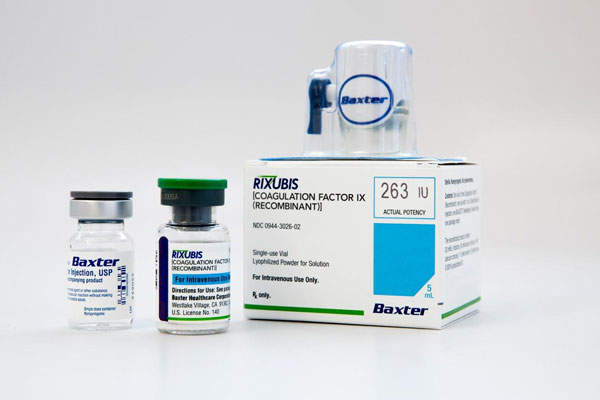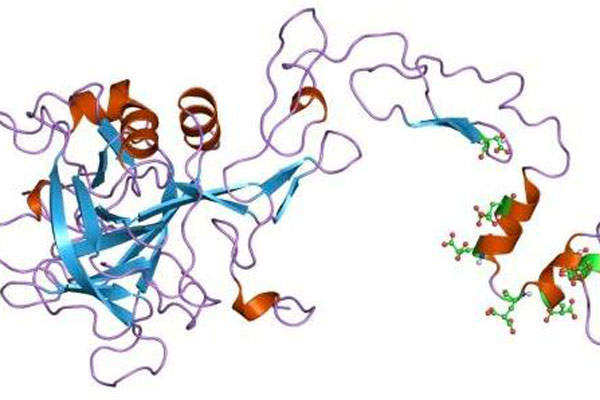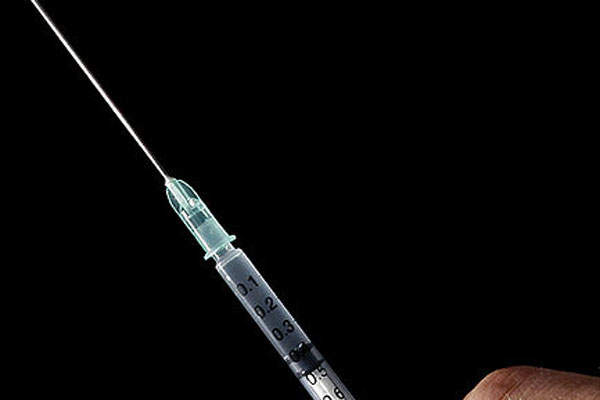Rixubis [coagulation factor IX (recombinant)] is indicated for the control and prevention of bleeding episodes and perioperative management in the treatment of adult patients suffering from haemophilia B. The drug is developed and manufactured by Baxter International.
Baxter received approval for Rixubis from the US Food and Drug Administration (FDA) for routine prevention of bleeding in patients with haemophilia B in June 2013. The company also submitted an application to the FDA for the approval of a Rixubis paediatric indication in December 2013.
Baxter also submitted marketing authorisation application (MAA) for the approval of Rixubis in Europe in October 2013. The drug is currently under the review by the European Medicines Agency (EMA).
Haemophilia B causes and severity
Haemophilia B, also known as Christmas disease, is an inherited bleeding disorder that occurs due to deficiency of blood clotting factor IX gene. It is the second most common type of haemophilia.
Haemophilia B is estimated to affect 26,000 people internationally every year. An estimated 4,000 new cases of the disease are diagnosed every year in the US.
Rixubis mechanism of action
Rixubis contains a recombinant factor IX (rFIX) protein made with recombinant DNA technology. The protein prevents and controls the excessive bleeding associated with haemophilia by replacing the missing coagulation factor IX.
The drug is available in single-use vials of freeze-dried powder and is administered through intravenous injection after reconstitution with sterile water.
Clinical trials on Rixubis
The FDA approval for Rixubis was based on the results ascertained from a pivotal Phase I/III prospective clinical trial. The open-label, uncontrolled, multicenter study evaluated the pharmacokinetics, efficacy and safety of Rixubis. It enrolled 73 patients with severe or moderately severe haemophilia B, who were aged between 12 and 65 years.
The clinical study initially enrolled 59 patients, who were administered Rixubis twice-weekly, and 56 of them received the treatment for a minimum of three months while an additional 14 patients reporting at least 12 documented bleeding episodes were administered with Rixubis.
The results of the study demonstrated that the patients treated with Rixubis for six months achieved a median annualised bleed rate (ABR) of 2.0 including 43% of the patients experiencing no bleeds. The study also showed that none of the subjects developed an inhibitory antibody to FIX during the clinical study.
The most common adverse reactions encountered during the clinical study included dysgeusia, pain in extremity, and positive test for furin antibody.
Baxter’s application to the FDA for the approval of Rixubis paediatric indication was based on the results obtained from a phase II/III clinical trial that enrolled 23 previously-treated male patients less than 12 years of age with severe or moderately severe haemophilia B.
The patients were treated with a twice-weekly Rixubis prophylaxis regimen with a median dose of 56 IU/kg over six months or for at least 50 days.
The study results demonstrated that the patients treated with Rixubis achieved a median ABR of 2.0. The drug was rated excellent or good at resolving bleeds in 96% of all episodes. No adverse reactions were reported during the clinical study.
Marketing commentary
Baxter International develops, manufactures and markets products for people with haemophilia, immune disorders, infectious diseases, kidney disease, trauma, and other chronic and acute medical conditions. It employs about 50,800 people globally.
Rixubis is the only rFIX approved by the FDA in 15 years. Baxter launched the drug in the US market in 2013 and expects to launch it in Europe in 2014.





